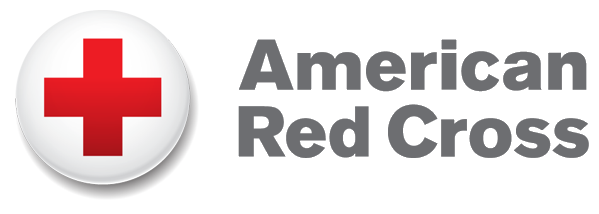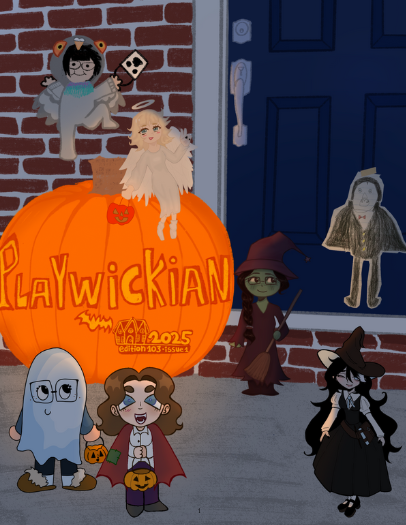A pinch and a burn
Student shares experience donating blood

Photo via Google under Creative Commons license
Neshaminy High School and the National Honor Society will host the spring blood drive April 28.
“Just a pinch and a burn, Connor.” Then I felt the pinch, followed by a slow burn that radiated up and down my left arm. I lifted my head up and glanced down towards my arm to see my own blood slowly leaving my body through a thin plastic tube. My eyes stared in near disbelief at the spectacle occurring on my left arm. I laid my head back down on the headrest, trying to relax as I lost drop after drop of blood.
“How are you feeling?” asked Gauri Mangala, one of my ‘comforters,’ which is the name given to the volunteers from the National Honor Society who keep the donor’s company while they give blood.
“I feel fine right now,” I answered, though unsure if I would continue to feel as well as I did then.
Another one of my comforters, Riley Hastings, looked down at me and asked, “Does it hurt?”
“No,” I answered, being completely honest. “It hurt a little bit when she first put the needle in, but I don’t feel anything now.” Although it hurt a bit at first, it felt good to finally lay on that stretcher, doing something good, something that could really help other people. I began to think about how I got here, and I realized that multiple scenarios in the past few hours could have prevented me from giving blood, had they turned out differently.
My appointment was scheduled for 12:30 pm, so I left the band room, the location of my sixth period class, at 12:25 so I could get to the gym on time. On my walk all the way across the school, I passed Jess Souder, a girl in my band class. I noticed a bandage wrapped around her arm and a sticker on her shirt that read, “I donated!”
I had butterflies about the blood drive, so I asked her how she did, and she reassured me by answering with, “It went well.” That made me feel at least slightly better.
When I got to the gym, I was greeted by the friendly faces of some the National Honor Society volunteers. They were very warm and welcoming to me, and once I checked in, I strolled through the doors of the gymnasium.
Music played softly in the background, echoing off the walls of the room, and the busy chattering of the workers, volunteers and donors created a very lively environment. Multiple stretchers stood in the center of the gym, each of them with a donor laying on top. Two large blue mats sat to the right of me, where many students sat and enjoyed food and beverages, so they could recharge after losing a pint of blood.
I stopped at a small red table on my right, and they handed me a packet of information from the Red Cross to read, and a whole bottle of water to drink before I donated. I sat down on the bleachers and began to read the packet between gulps of water when Gauri came over to me.
“Hey Connor! I’m going to be your comforter today. How are you feeling?” She sat down next to me and grabbed the thick packet from my hands.
“I’m great!” I answered enthusiastically, honestly ecstatic to do something good for the community. Then Gauri started to go over the packet with me, asking my questions such as “Have you traveled to Florida in the past few months?” I answered no to all of the questions, indicating that I didn’t have Zika Virus, HIV, or any blood disorders. I knew this already, but it makes sense that the Red Cross needs to make sure. They can’t have contaminated blood.
“Okay, you’re good to go Connor,” she said, pointing across the room towards a group of about 20 chairs. “Just head over there and sit in one those chairs. Sit down, relax, and keep drinking your water. You’ll be called by the workers eventually.”
I thanked her, walked across the gym, and sat down in one of the chairs, next to a dozen other people hoping to give blood. I noticed that only two people got called by the Red Cross workers every five minutes, so I figured I would be sitting there for a while.
Time passed slowly sitting in that chair, but one interesting thing did happen. A student whose name I did not know walked back towards the chairs looking slightly disappointed. He got called ten minutes ago and explained to his friend sitting in the row of chairs in front of me that he wasn’t allowed to give blood.
“Yeah,” he said. “I had a vaccination like a few months ago, and they can’t figure out what it was. I’m not allowed to donate unless I find a more detailed record.” This made me think, what if I can’t give blood? I would definitely be disappointed. I pushed the thought out of my mind and tried to stay positive.
A few minutes later, the workers finally called for my group. “Could the next two come back?” the man asked. I stood up, and I walked towards one of the empty desks. A lady dressed in scrubs sat there at the computer, waiting for me to sit down. I sat down on the chair as I handed her my permission form signed by my parent.
“Okay, Connor,” she began. “What I’m going to do now is take your temperature, measure your blood pressure, and get a sample of blood to test your iron contents.” I nodded as she wrapped the sphygmomanometer (the device used to measure blood pressure) around my arm. My blood pressure measured to a healthy two numbers.
Next, she took out a small electronic thermometer and placed part of it under my tongue. It beeped after a few seconds and she looked concerned. “Did you eat or drink anything right before you came here?” I said no, and then she turned the monitor towards me so I could see that I had a 100 degree fever.
“I don’t feel sick,” I said. “I have no idea why I would have a fever.” She told me not to worry, and that she would try again in a few minutes to see if it goes back to normal.
Then she prepared to prick my finger in order to test my blood iron levels. She moved a small square device right above my left middle finger and after a quick pinch, a droplet of blood oozed out of my finger. She took it in a plastic container and placed it in a machine. After a few seconds, the machine suddenly beeped.
“We need your percent to be at least 13, but right now, you are only at 12,” she explained. “Let me take your temperature again, and then someone else can come over to do another iron test.”
For some reason, the second time she took my temperature it was completely normal. And when a man came over to do my iron test again, he said that I had a normal iron level. I asked him, “Why would my iron levels be low at first, but be normal now?”
He explained to me that the test for iron can be inaccurate a lot of the time. They should think of a better way to test for iron, then, I thought.
Then he asked me to answer a few questions on the computer in front of him, the same questions that Gauri had asked me earlier. I was finally approved to donate blood. I could feel the joy welling up inside me. It felt good to be doing something good.
And that’s how I got there, on that stretcher, my own blood slowly leaving my body. The journey stretched on for what seemed like forever (although it was only 2 hours), but it was very worth it. After a few minutes, the Red Cross worker took the needle out and wrapped a bandage around my arm. I didn’t feel any pain. She asked me to lift my arm straight up in the air for half a minute, and then slowly sit up.
“When you’re ready, you can stand up and walk directly to those blue mats over there,” she said. I swung my legs over the side of the stretcher and slowly stood up. I felt great!
“Riley,” she commanded, “hold his arm while he walks over. Make sure he’s okay.”
However, I felt absolutely fine, so we instead began to walk over towards the snack stand so I could get some raisins, orange juice, and water. It was then that the effects of losing a pint of blood hit me.
I suddenly felt very lightheaded, and my vision started going black. “Actually,” I mumbled, “I’m going to sit down on the mat for a little while.” I felt very nauseous, but I began to eat the raisins that Riley brought me. I didn’t feel any better, but after sipping my orange juice and water, and continuing to eat the raisins, I began to feel like myself again. I stood up, and I felt normal. My blood giving experience had finally ended.
Overall, donating blood did not turn out to be as painful or scary as I expected it to be. In fact, it was actually a very good experience. I, along with countless other donors, participated in something amazing today. We gave our blood, so that someone in the future who needs it more than us can have it. We helped the community.
Many people say that they aren’t good with needles, which is why they never give blood. To be honest, I’m not great with needles either, but it really wasn’t painful at all. If someone can give blood, they should give blood. It’s an easy thing to do that can immensely help someone in the future. Just a pinch and a burn, I thought as I walked out the front doors of Neshaminy High School, and you can save a life.





